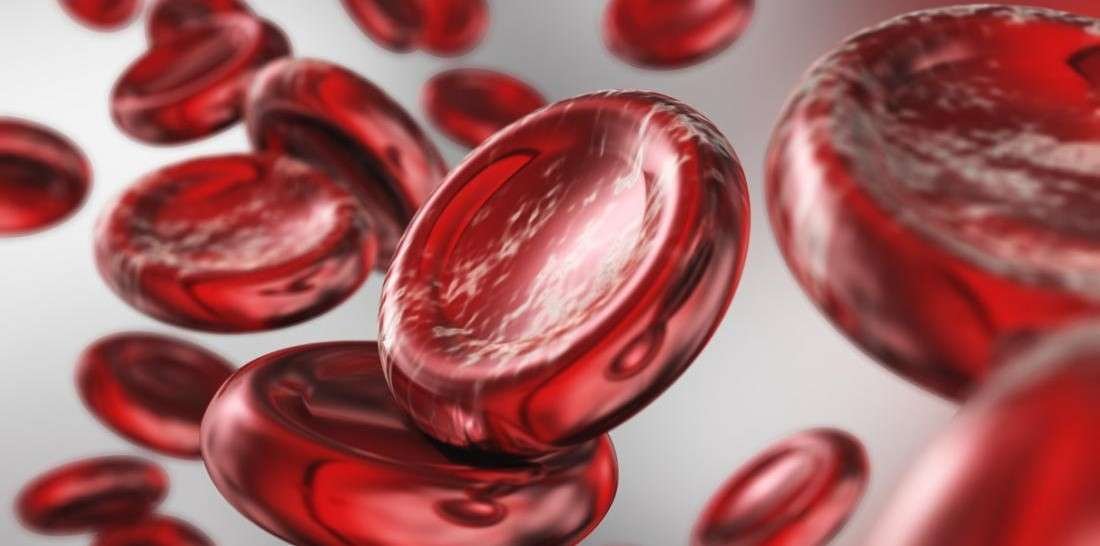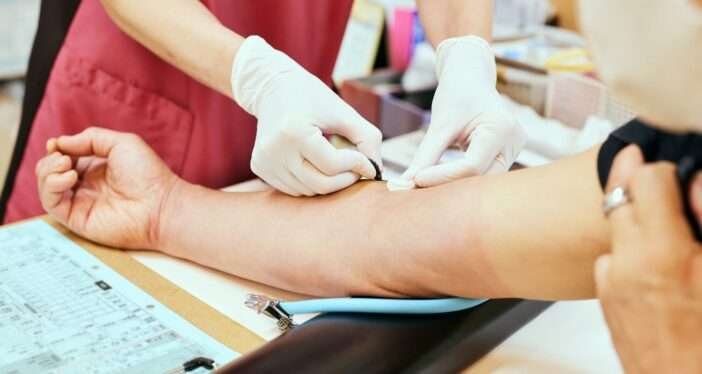
Low hemoglobin is a common problem that makes you feel tired, weak, and breathless. In medical terms it’s often called anemia, and it means your blood carries less oxygen than it should. This post explains what Low hemoglobin means, common causes, practical tests, Ayurvedic-friendly steps to support recovery, and when to get professional help. If you want personalised guidance, there’s a consultation link at the end.
What is Low hemoglobin?
Hemoglobin is the iron-containing protein in red blood cells that carries oxygen from the lungs to tissues. When hemoglobin falls below the normal range, your organs get less oxygen and you may feel fatigued, lightheaded, or short of breath. Detecting Low hemoglobin early helps prevent complications and improves energy.
Common causes of Low hemoglobin
- Iron-deficiency (most common): from low dietary iron, poor absorption, or blood loss.
- Vitamin deficiencies: low B12 or folate can reduce red blood cell production.
- Chronic disease or inflammation: long-standing illnesses may lower hemoglobin.
- Blood loss: heavy menstrual bleeding, gastrointestinal bleeding, or surgery.
- Inherited conditions: such as thalassemia or sickle-cell trait.
- Poor digestion or gut issues: reduce nutrient absorption (important in Ayurveda).
Signs and symptoms of Low hemoglobin
Look for these common clues — they often appear gradually:
- Persistent fatigue and low stamina.
- Pale skin, gums, or inner eyelids.
- Shortness of breath on mild exertion.
- Dizziness or lightheadedness.
- Heart palpitations or faster heartbeat.
- Cold hands and feet, brittle nails, or hair loss.
If you notice several of these, consider a simple blood test (CBC) to check hemoglobin levels.

Tests to confirm Low hemoglobin
- Complete Blood Count (CBC): measures hemoglobin, hematocrit, and red cell indices.
- Serum ferritin & serum iron: check iron stores and supply.
- Vitamin B12 & folate levels: when macrocytic anemia is suspected.
- Reticulocyte count, peripheral smear, and other tests: as guided by a doctor.
Your doctor or Ayurvedic practitioner can help interpret results and plan next steps.
Ayurvedic view on Low hemoglobin
In Ayurveda, Low hemoglobin commonly links to weak Rakta Dhatu (blood tissue) and impaired digestion (Agni). Poor digestion reduces nutrient assimilation and weakens Ojas (vitality). Treatment focuses on strengthening digestion, nourishing blood, and restoring balance with herbs, diet, and therapies tailored to your constitution.
Ayurvedic-friendly supports for Low hemoglobin
These are supportive measures — always combine with medical advice if levels are low.
- Improve digestion first
- Sip warm water; avoid raw, cold foods that weaken Agni.
- Use digestive spices like cumin, coriander, and ginger in meals.
- Focus on iron-rich, nourishing foods
- Animal sources: lean liver, red meat, eggs (if non-veg).
- Plant sources: cooked spinach, fenugreek (methi), drumstick (moringa), lentils, jaggery, sesame seeds, and dates.
- Combine iron foods with vitamin C (lemon, amla) to boost absorption.
- Herbal supports (under practitioner guidance)
- Triphala and Punarnava improve digestion and detox.
- Lohasava/Loh Bhasma are classical iron-containing preparations used in Ayurveda — use only under a qualified practitioner.
- Amla (Indian gooseberry) supports vitamin C intake and nourishes tissues.
- Lifestyle & routines
- Gentle daily exercise (walking, yoga) to improve circulation.
- Adequate sleep and stress reduction (breathing exercises, meditation).
- Avoid heavy tea or coffee immediately with meals — they reduce iron absorption.
- Safe topical & procedural supports
- Abhyanga (oil massage) with medicated oils to strengthen overall vitality.
- Nasya or Rasayana therapies when recommended by an Ayurvedic doctor.
When Low hemoglobin needs urgent care
Seek immediate medical help if you have:
- Very low hemoglobin on tests, severe breathlessness, chest pain, fainting, or rapid heartbeat.
- Signs of active bleeding (blood in stool, heavy menstrual flow).
These can be life-threatening and require prompt medical evaluation.
Combining modern tests with Ayurvedic care
Best outcomes come from integrating diagnostic testing (CBC, iron studies) with individualized Ayurvedic plans. Modern tests find the cause and severity; Ayurveda supports healing with diet, herbs, and lifestyle changes to restore blood and vitality.
Get a personalised consultation
If you suspect Low hemoglobin, don’t wait. Vedic Upchar offers Ayurvedic consultations that review your history, suggest the right tests, and create a tailored plan — diet, herbs, and therapies — to restore healthy hemoglobin and energy.
👉 Book an Ayurvedic consultation: https://vedicupchar.com/doctor-consultation/
Takeaway
Low hemoglobin is common and often reversible with the right approach: correct tests, targeted nutrition, improved digestion, and guided Ayurveda. Early action restores energy and prevents complications. If symptoms persist, get professional advice and follow a personalised plan.